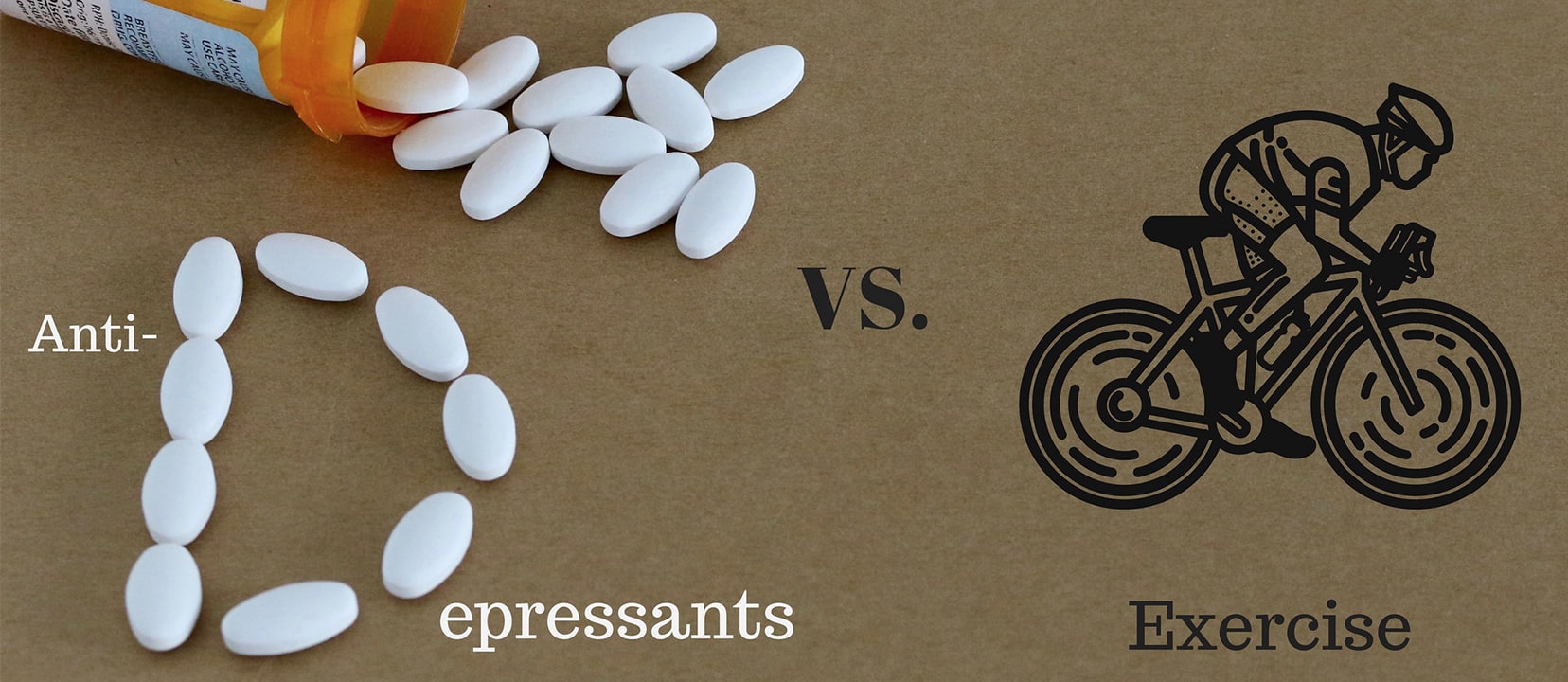We’ve known for decades that even a single bout of exercise can elevate our mood, but could it be enough to be used as a treatment for major depression?
We’ve known that physical activity has been associated with decreased symptoms of depression. For example, if you look at a cross-section of 8,000 people across the country, those that exercised regularly were less likely to have a major depression diagnosis. That’s just a snapshot in time, though. In that study, the researcher openly acknowledges this may be a case of reverse causation. Maybe exercise didn’t cut down on depression, maybe depression cut down on exercise. The reason depression may be associated with low physical activity is that people may feel too lousy to get out of bed. What we’ve needed was an interventional study where you take people who are already depressed and randomize them into an exercise intervention.
That is what researchers from Duke University Medical Center did. They randomized men and women over age 50 with major depression to two groups: one who did an aerobic exercise program for four months and another that took an antidepressant drug called Zoloft. In my video Exercise vs. Drugs for Depression, you can see a graph of their changes. Before exercise, their Hamilton Depression scores were up around 18 (anything over seven is considered depressed). Within four months, the drug group came down to normal, which is exactly what the drugs are supposed to do. What about the exercise-only group, though? Exercise had the same powerful effect.
The researchers concluded that an exercise training program may be considered an alternative to antidepressants for treatment of depression in older persons, given that they’ve shown that a group program of aerobic exercise is a feasible and effective treatment for depression, at least for older people.
Not so fast, though.
A “group program?” They had the exercise group folks come in three times a week for a group class. Maybe the only reason the exercise group got better is because they were forced to get out of bed and interact with people—maybe it was the social stimulation and had nothing to do with the actual exercise? Before you could definitively say that exercise can work as well as drugs, what we would need to see is the same study, but with an additional group who exercised alone with no extra social interaction. And those same Duke researchers did just that.
They created the largest exercise trial of patients with major depression conducted to date, and not just including older folks, but other adults as well with three different treatment groups this time: a home exercise group in addition to the supervised group exercise and the drug group as before.
And, they all worked about just as well in terms of forcing the depression into remission. So, we can say with confidence that exercise is comparable to antidepressant medication in the treatment of patients with major depressive disorder.
Putting all the best studies together, researchers indicate that exercise at least has a moderate antidepressant effect, and at best, exercise has a large effect on reductions in depression symptoms and could be categorized as a very useful and powerful intervention. Unfortunately, while studies support the use of exercise as a treatment for depression, exercise is rarely prescribed as a treatment for this common and debilitating problem.
Exercise may compare favorably to antidepressant medications as a first-line treatment for mild to moderate depression, but how much is that really saying? How effective are antidepressant drugs in the first place? Check out my video Do Antidepressant Drugs Really Work?
For dietary interventions that may improve mood, see:
- Improving Mood Through Diet
- Fighting the Blues with Greens?
- Aspartame and the Brain
- The Wrong Way to Boost Serotonin
- A Better Way to Boost Serotonin
- The Best Way to Boost Serotonin
- Saffron vs. Prozac
- Which Foods Increase Happiness?
- Are Happier People Actually Healthier?
- Anti-inflammatory Diet for Depression
- Plant-Based Diets for Improved Mood & Productivity
- Can Dehydration Affect Our Mood?
Exercise can also help with ADHD (Treating ADHD Without Stimulants) and improve immunity (Preserving Immune Function in Athletes With Nutritional Yeast), not to mention extend our lives (Longer Life Within Walking Distance). But what we eat matters: Paleo Diets May Negate Benefits of Exercise.
In health,
Michael Greger, M.D.
PS: If you haven’t yet, you can subscribe to my free videos here and watch my live, year-in-review presentations:
- 2012: Uprooting the Leading Causes of Death
- 2013: More Than an Apple a Day
- 2014: From Table to Able: Combating Disabling Diseases with Food
- 2015: Food as Medicine: Preventing and Treating the Most Dreaded Diseases with Diet
- 2016: How Not To Die: The Role of Diet in Preventing, Arresting, and Reversing Our Top 15 Killers
